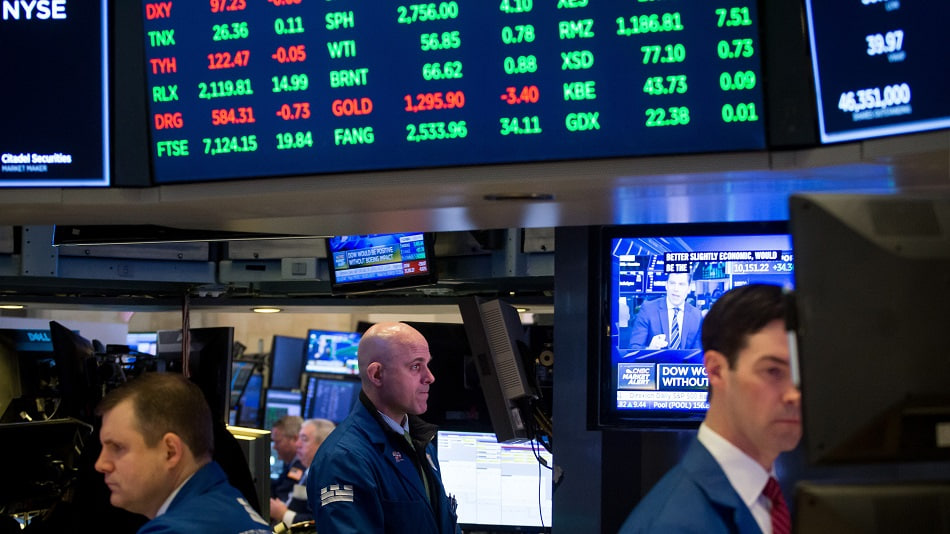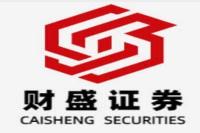The Rollercoaster Ride of the Hang Seng China Enterprises Index: A Deep Dive into Market Volatility
Meta Description: Hang Seng China Enterprises Index, market volatility, stock market analysis, investment strategies, Chinese economy, index performance, December 10th market swing, expert analysis, risk management.
Imagine this: you're strapped into a rollercoaster, soaring to exhilarating heights, only to plummet down with your stomach in your throat. That, my friends, is a pretty good analogy for the Hang Seng China Enterprises Index (HSCE) on December 10th. The index, a key barometer of the performance of mainland Chinese companies listed in Hong Kong, experienced a dramatic turnaround, initially surging over 3% before ultimately reversing course and ending the day in negative territory. This wild swing wasn't an isolated incident; it's symptomatic of the inherent volatility in global markets, particularly those deeply intertwined with the nuanced landscape of the Chinese economy. This isn't just about numbers on a screen; it's about understanding the complex forces shaping investor sentiment, the geopolitical currents impacting market confidence, and the crucial role of risk management in navigating these turbulent waters. This in-depth analysis delves into the intricacies of the HSCE's December 10th performance, examining the potential catalysts behind the dramatic shift, exploring the broader implications for investors, and providing actionable insights for making informed decisions in this dynamic market. We'll unravel the complexities with a blend of seasoned expertise, real-world examples, and a dash of plain English, ensuring you leave with a clearer understanding – and perhaps, a steadier stomach for future market swings. We'll look at macroeconomic factors, regulatory changes, investor psychology, and even the impact of global events, giving you a 360-degree view of what happened and, more importantly, what it might mean for your portfolio. So, buckle up – it's going to be a fascinating ride!
Hang Seng China Enterprises Index (HSCE) Performance
The HSCE's dramatic swing on December 10th serves as a potent reminder of the inherent risks associated with investing in emerging markets. The initial surge, exceeding 3% in early trading, generated excitement and fueled hopes of a sustained upward trend. However, this optimism proved short-lived, as the index reversed its course, ultimately closing the day lower. This volatility underscores the need for a comprehensive understanding of the factors influencing the HSCE's performance, ranging from macroeconomic indicators to geopolitical events and investor sentiment. Let's delve deeper into the potential causes:
-
Regulatory Uncertainty: Shifts in Chinese government policies and regulations can significantly impact investor confidence. Any unexpected announcements or changes in regulatory frameworks can trigger rapid market reactions, as investors grapple with the implications for listed companies. For example, changes in antitrust regulations or policies related to technology companies can lead to significant market fluctuations.
-
Global Economic Headwinds: The HSCE is not immune to global economic forces. Concerns about rising inflation, interest rate hikes, and potential recessions in major economies can dampen investor enthusiasm, leading to capital outflows from emerging markets like China.
-
Geopolitical Tensions: Geopolitical events, such as trade disputes or heightened tensions between China and other countries, can fuel market uncertainty and volatility. These events often create an environment of risk aversion, prompting investors to seek safer havens for their investments.
-
Investor Sentiment: Market psychology plays a crucial role in driving short-term price fluctuations. News reports, analyst opinions, and social media chatter can influence investor sentiment, leading to herd behavior and amplified market movements. A sudden shift in sentiment, from optimism to pessimism, can trigger swift and dramatic price changes.
Table 1: Potential Factors Influencing HSCE Volatility
| Factor | Impact on HSCE | Example |
|----------------------|-----------------------------------------------|----------------------------------------------|
| Regulatory Changes | Increased/Decreased investor confidence | New antitrust regulations targeting tech firms |
| Global Economic Slowdown | Reduced investor appetite for emerging markets | Rising interest rates in the US |
| Geopolitical Risks | Heightened uncertainty and market volatility | US-China trade tensions |
| Investor Sentiment | Rapid shifts in market prices | Negative news reports impacting confidence |
Understanding the Chinese Economy's Influence
The health and direction of the Chinese economy are inextricably linked to the performance of the HSCE. China's economic growth, or lack thereof, directly impacts the profitability and prospects of the companies listed on the index. Key indicators like GDP growth, inflation rates, industrial production, and consumer spending all provide valuable insights into the overall economic climate and its influence on the HSCE. Moreover, government policies aimed at stimulating economic growth or addressing specific challenges can significantly impact investor sentiment and market performance. Keeping a close eye on macroeconomic data releases from China is crucial for anyone interested in understanding and predicting HSCE movements.
Risk Management Strategies for HSCE Investments
Given the inherent volatility of the HSCE, implementing robust risk management strategies is paramount for investors. This includes:
-
Diversification: Don't put all your eggs in one basket. Diversify your investment portfolio across different asset classes, geographies, and sectors to mitigate risk.
-
Hedging: Employ hedging strategies, such as using derivatives, to protect your portfolio against potential losses.
-
Position Sizing: Carefully manage your position size to avoid excessive risk. Don't invest more than you can afford to lose.
-
Stop-Loss Orders: Set stop-loss orders to automatically sell your holdings if the price drops below a predetermined level. This limits potential losses.
-
Regular Monitoring: Keep a close eye on market developments and adjust your investment strategy accordingly.
Frequently Asked Questions (FAQs)
Q1: What is the Hang Seng China Enterprises Index (HSCE)?
A1: The HSCE is a stock market index that tracks the performance of large mainland Chinese companies listed on the Hong Kong Stock Exchange. It's a key benchmark for the performance of Chinese companies in the global market.
Q2: Why is the HSCE so volatile?
A2: The HSCE's volatility stems from a confluence of factors, including regulatory uncertainty in China, global economic conditions, geopolitical events, and shifts in investor sentiment.
Q3: How can I invest in the HSCE?
A3: You can gain exposure to the HSCE through various investment vehicles, such as exchange-traded funds (ETFs) that track the index, or by directly investing in individual companies listed on the index. However, always consult with a financial advisor before making any investment decisions.
Q4: Is investing in the HSCE risky?
A4: Yes, investing in the HSCE carries significant risk due to its inherent volatility. It's crucial to understand these risks and implement appropriate risk management strategies.
Q5: What are the potential long-term prospects for the HSCE?
A5: The long-term prospects for the HSCE depend on several factors, including China's economic growth trajectory, the stability of its regulatory environment, and global economic conditions. It's a complex forecast with inherent uncertainties.
Q6: Where can I find reliable information about the HSCE?
A6: You can find reliable information about the HSCE from reputable financial news sources, financial data providers, and the official website of the Hong Kong Stock Exchange. Always cross-reference information from multiple sources before making any investment decisions.
Conclusion
The December 10th rollercoaster ride of the Hang Seng China Enterprises Index highlights the importance of understanding the complex interplay of factors influencing market movements. While the initial surge offered a glimpse of potential gains, the subsequent reversal underscored the inherent risks associated with investing in this dynamic market. By carefully analyzing macroeconomic conditions, regulatory changes, geopolitical events, and investor sentiment, and by employing robust risk management strategies, investors can navigate the complexities of the HSCE and potentially capitalize on its long-term growth prospects. Remember, though, that investing always involves risk, and past performance is not indicative of future results. Due diligence, professional advice, and a measured approach are key to success in the ever-changing world of global finance. Don't be afraid to seek expert guidance – your financial well-being is worth it!



